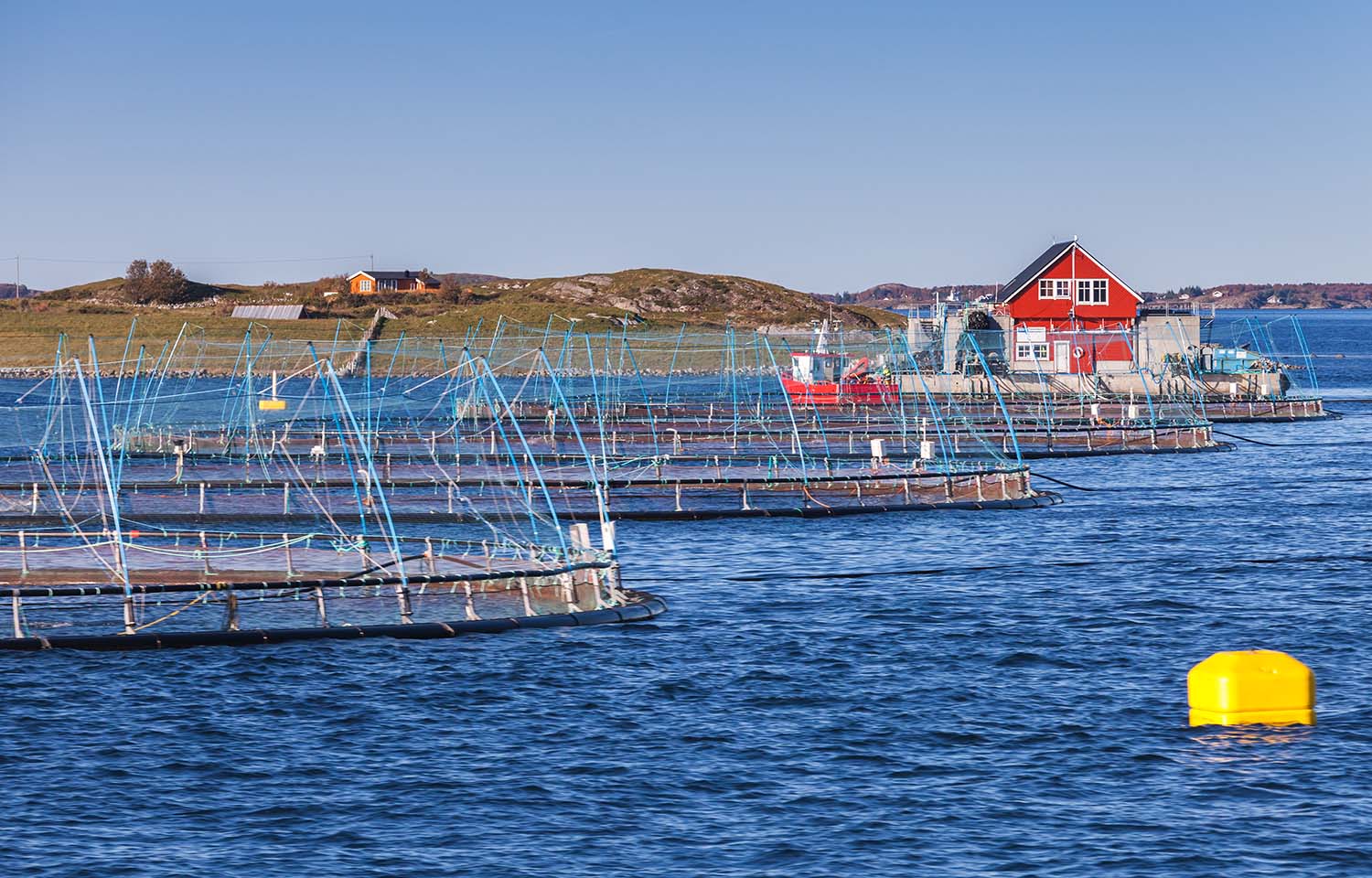Nearly 2 million metric tons of wild fish are harvested from the ocean to feed Norwegian farmed salmon every year, according to a report from U.K.- and Netherlands-based environmental campaign group Feedback, as well as a coalition of West African and Norwegian organizations.
According to "Blue Empire: How the Norwegian salmon industry extracts nutrition and undermines livelihoods in West Africa," these wild fish are used to produce fish oil for salmon feed, which is contributing to the loss of livelihoods and malnutrition in the West African countries of The Gambia, Senegal, and Mauritania.
“Along the West African coast, small-scale fishing is the only means of subsistence for Indigenous communities,” Regional Network of Marine Protected Areas in West Africa (RAMPAO) Executive Secretary Marie Suzanna Traore said. ”The big boats that supply the fishmeal and fish oil industry with fish caught in African waters – to the detriment of these communities – undermine their human dignity.”
In the report, Feedback calculated that the Norwegian salmon farming industry’s "feed footprint" is equivalent to 2.5 percent of global marine fisheries catch. The report also estimated that Norway’s annual output of farmed salmon is 27 percent lower than the volume of wild fish required to produce the fish oil used in Norwegian farmed salmon feed. The Norwegian industry’s plan to more than triple farmed salmon production to 5 million metric tons by 2050 would create demand for over three times as much wild-caught fish compared to 2020.
“While salmon companies claim their ‘blue revolution’ will contribute to global food security by feeding the world, the rapid expansion of industrial aquaculture is fueling a modern-day colonialism – or food imperialism,” Feedback Campaigns Director Natasha Hurley said. “Despite mounting hunger and malnutrition in West African countries, corporate sustainability initiatives are failing to protect West African communities from hunger and malnutrition linked to the voracious appetite of the salmon-farming industry for wild fish.”
Feedback estimated that fish sourced from West African fishing grounds to supply fish oil to the Norwegian salmon farming industry in 2020 could have provided up to 4 million people in the region with a year’s supply of fish.
Four of the industry’s biggest feed producers – Mowi, Skretting, Cargill, and Biomar – supply most of the feed used in Norwegian salmon farming, and each sources fish oil from northwest Africa.
One-quarter of the total volume of fish oil sourced from West Africa by Norwegian companies was purchased by Mowi in 2020, including 5,100 MT of fish oil from Mauritania in 2020, which Feedback calculates was produced from 28,300 MT of fish. Another 17,000 MT of fish oil were sourced by Skretting, Cargill, and BioMar from the major fishing area located off the west coast of Africa known as FAO 34.
In Mauritania, round sardinella catches dropped by 66 percent between 2020 and 2021, while in Senegal, they dropped by 86 percent and in Gambia by 16 percent over the same period, according to Sub-Regional Fisheries Commission Techincal Advisor Mika Samba Diop.
“Unfair competition from fishmeal factories, which offer more money for catches, has resulted in many women who process small pelagic fish losing their jobs,” Diop said. “The overexploitation of fish stocks has led to a drastic reduction in small-scale fishers’ incomes and local fish consumption of fish. For example, in The Gambia, annual per capita consumption of fish has gone from 15 kilograms in 2020 to only 8 kilogarms in 2021.”
As part of the campaign, Feedback and fellow environmental NGO WildFish is calling for British restaurant chain Wagamama to stop serving farmed salmon.The chain, which has nearly 200 U.K. locations, currently features three dishes featuring farmed salmon.
"The campaign was launched after Wagamama failed to respond to several letters from NGOs asking for clarification on its farmed salmon sourcing standards," Feedback Campaigner Liam Lysaght said in a press release. "As a restaurant which markets itself as a sustainability leader, Wagamama’s response may set a precedent for the place of farmed salmon on hospitality menus.
Photo courtesy of Evannovostro/Shutterstock







